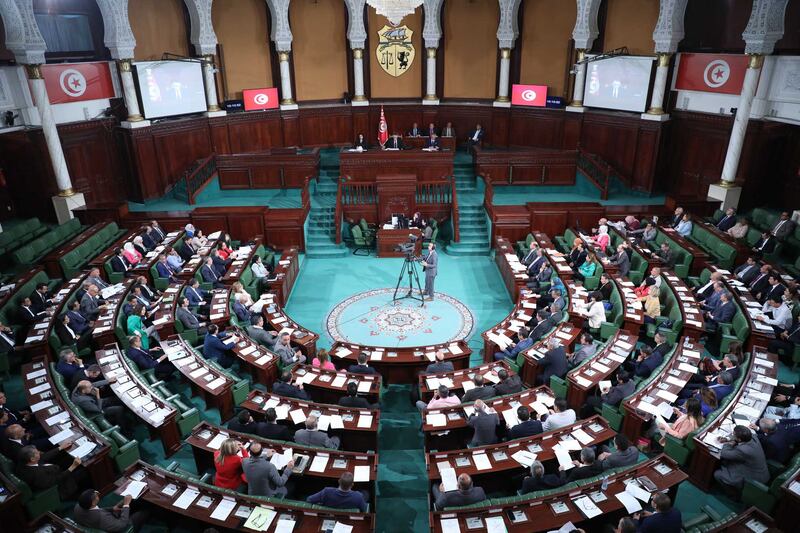Tunisia will receive $500 million from the African Export-Import Bank to fund its 2023 budget, parliament announced on Thursday, after passing a law relating to the loan.
The Tunisian parliament’s House of Representatives approved the draft law relating to the approval of the loan’s clauses, which were concluded in an agreement between the Tunisian government and representatives of the African Export-Import Bank on April 4.
“The loan is a temporary solution for Tunisia’s current crisis,” MP Malik Kammoun told The National.
“We are aware that the ongoing economic crisis necessitates a strategic development and investment vision, however, it is impossible to be patient amid the current status quo,” Mr Kammoun added.
He said the Tunisian parliament’s finance committee is working on a more long-term solution for the country’s economic crisis, and that it was essential to find alternative funding.
“The parliament’s stance rejects external indebtedness but we are also aware of our living conditions and we are seeking solutions to mitigate that,” Mr Kammoun added.
A report by the parliament’s finance committee said the loan Tunisia will receive from the African Export-Import Bank will have an interest rate estimated at 10.28 per cent and a repayment period of five years, including a two-year grace period.
Tunisia is still reeling from an economic crisis that has caused the state's public finances to suffer an ongoing deficit, and it requires funding from international lenders to avoid collapse.
A bailout package from the International Monetary Fund remains pending, as discussions between the lender and the Tunisian government continues.
President Kais Saied has reiterated on multiple occasions his rejection of any conditional financial package that might disturb social peace and cause further suffering for Tunisian citizens.
Mr Saied told economics professors in a meeting on Wednesday that “it is out of question for the state to dispose of its public institutions” to receive any sort of conditional funding.
The IMF has repeatedly expressed the need for the Tunisian government to commit to a reform programme which would involve reducing subsidies and the management of core public sector institutions, including health and education.







